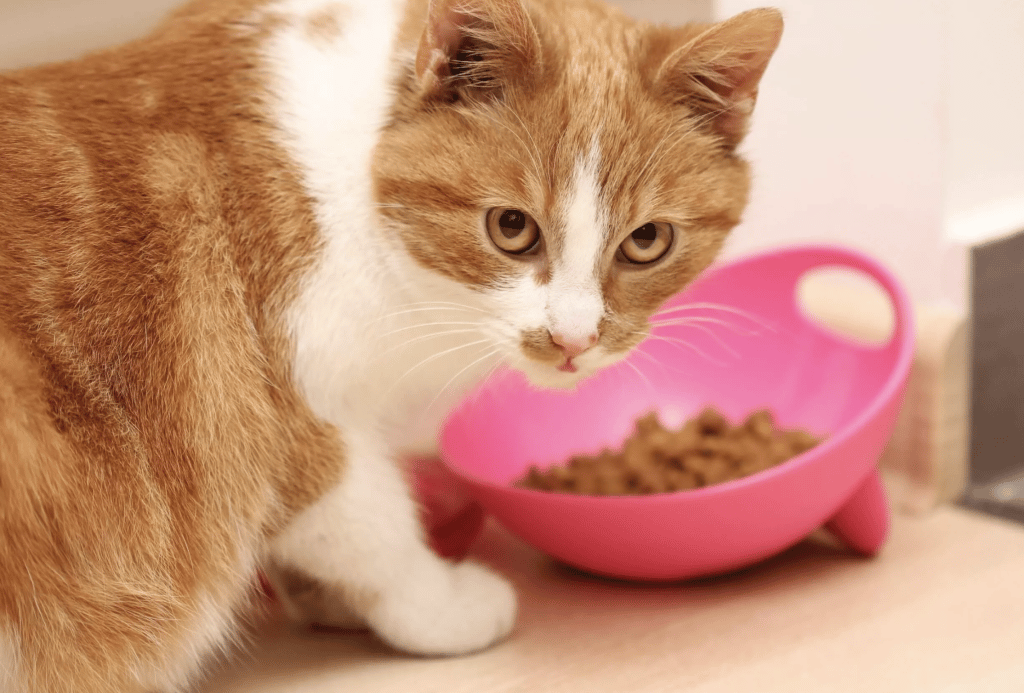Cats are known for their fastidious nature and are often very particular about what they eat. Unfortunately, this can lead to digestive issues that cause discomfort and upset. One common problem for cats is a sensitive stomach, which can result in a range of symptoms, such as vomiting, diarrhea, and decreased appetite. As a pet owner, it is important to understand the causes of sensitive stomachs in cats and how to find the right food to alleviate the issue.
5 Cat Foods For Cats With Sensitive Stomachs
Cats with sensitive stomachs require a different type of diet than cats with healthy digestive systems. The following are five categories of best cat food for sensitive stomachs:
Wet Food With High-Quality Protein Sources
Wet food with high-quality protein sources is an excellent option for cats with sensitive stomachs. The high moisture content of wet food helps to keep your cat hydrated, which is important for digestive health. High-quality protein sources such as chicken, turkey, and fish are less likely to cause digestive upset, making them a great choice for cats with sensitive stomachs.
Limited Ingredient Diets
Limited-ingredient diets are specifically designed for cats with food sensitivities. These diets typically contain only a few key ingredients, making it easier to identify any potential allergens. Additionally, limited-ingredient diets are usually made with high-quality proteins, which can help to reduce the risk of digestive upset.
Wet Food With Added Probiotics
Wet food with added probiotics can help to regulate your cat’s digestive system and improve their overall gut health. Probiotics are beneficial bacteria that can help to improve the balance of good bacteria in your cat’s gut, which can help to reduce the risk of digestive upset.
Grain-Free Wet Food
Cats with sensitive stomachs can benefit from a diet that is easy to digest. One solution to consider is grain-free cat food. Unlike traditional cat food that often contains grains, such as corn and wheat, grain-free wet food is made with alternative sources of carbohydrates that are easier for cats to digest.
Grains can be difficult for cats to digest, and may cause digestive upset. Some cats may even experience allergies to grains, leading to symptoms such as vomiting, diarrhea, and skin irritation. Grain-free wet food is made without these ingredients, and instead uses sources such as potatoes and peas to provide energy and nutrients to your cat.
Wet Food With A Low-Fat Content
Wet food with a low-fat content is recommended for cats with sensitive stomachs because fat can be difficult for cats to digest. A low-fat diet can help to reduce the risk of digestive upset and improve your cat’s overall gut health.
Transition Your Cat To A New Diet
If you’re interested in changing your cat’s diet, there are several things to consider:
- Gradual Transition – It’s important to transition your cat to a new diet gradually to avoid digestive upset. Start by mixing a small amount of new food with their current food and gradually increasing the amount over a period of several days or weeks.
- Consult With Your Veterinarian – If your cat has a sensitive stomach, it’s important to consult with your veterinarian before making any dietary changes. Your veterinarian can help you determine the best food for your cat based on their specific needs and health history.
- Consider Your Cat’s Tastes – Some cats may be pickier than others, and may not be interested in trying new food. If this is the case, try different brands and flavors of food until you find one that your cat loves.
Salmon & Tuna As Ingredients In Cat Food
Incorporating salmon and tuna into your cat’s diet can provide numerous benefits for cats with sensitive stomachs. These fish are high in protein and omega-3 fatty acids, which can help to improve your cat’s digestive health. Additionally, salmon and tuna are both low in fat, making them an excellent choice for cats with sensitive stomachs.
In conclusion, finding the right food for a cat with a sensitive stomach is essential for managing their digestive health. Wet food with high-quality protein sources, limited ingredient diets, wet food with added probiotics, grain-free wet food, and wet food with a low-fat content are all great options for cats with sensitive stomachs. Additionally, incorporating salmon and tuna into your cat’s diet can provide numerous benefits for their digestive health. As a pet owner, it is important to understand the causes of sensitive stomachs in cats and to work with your veterinarian to find the right food for your feline companion.

